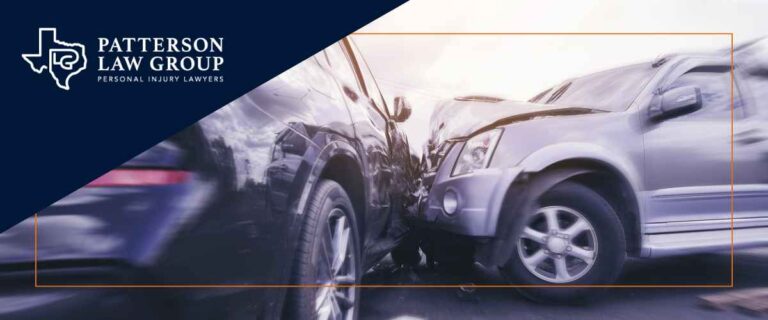Texas Lawyer article by Tennessee Walker (July 19, 2023)
Texas Lawyer article by Tennessee Walker (July 19, 2023) — This article is being published in Texas Lawyer. So, I will go out on a limb and assume that you, the reader, are a lawyer. In which case, you (like me) were taught that it is illegal to practice law without a law license. If a non-lawyer hangs a shingle as a “Legal Consultant”—taking a fee or drawing a salary to make legal strategy decisions and/or dictate the course of litigation—he/she would be prosecuted. Yet, making legal strategy decisions and dictating the course of litigation is exactly what insurance adjusters—non-lawyers—do every day. It’s their job, and they do it at the rigid direction of their insurance company employers. As discussed below, whether and to what extent it should be their job is open for debate.

As a plaintiff’s personal injury lawyer, I understand the tripartite relationship at the heart of the personal injury wing of our civil justice system. I understand that insurance coverage provides both a level of solvency and access to legal representation for people and companies who would otherwise have neither. So, what is the problem, why am I writing about it, and why is it a staff and captive counsel problem?
The answer is rooted in behavioral economics. For centuries, economic theory was based on the premise that all people were rational. In the least shocking thing you will read today, that theory was debunked. Indeed, in 2023, the premise that all people are rational is high comedy. Case in point, Tiger King was the top show on Netflix for most of 2020. Guilty as charged, in April 2020, I binge-watched Tiger King while trying to avoid the feeling that the walls were closing in on me. At that same time, the Texas Committee on Professional Ethics (the “PEC”) was pondering an important ethical question posed by an anonymous staff counsel. The question presented and conclusion merit quoting:
Question Presented:
1. Under the Texas Disciplinary Rules of Professional Conduct, must a staff lawyer employed by an insurance company to defend its insureds comply with the company’s guidelines regarding the defense of such cases?
2. What are a lawyer’s obligations if an insurance company cuts a staff lawyer’s support staff?
Conclusion:
Under the Texas Disciplinary Rules of Professional Conduct, a staff lawyer employed by an insurance company to defend its insureds may comply with the insurer’s guidelines only if the staff lawyer’s affiliation with the insurance company is fully disclosed to the client, the guideline does not interfere with the lawyer’s independent professional judgment, and the guideline is reasonable in scope and character and consistent with the client’s interests. A lawyer who believes that a particular guideline as applied in a specific situation interferes with her ability to discharge duties to the represented client should try to persuade the insurer to withdraw or modify the limitation. If the conflict cannot be cured, the lawyer must withdraw from the representation.
The insurance company’s decision regarding support staffing raises issues under the Texas Disciplinary Rules of Professional Conduct only if it materially compromises a staff lawyer’s ability to adequately discharge the lawyer’s duties to the insured clients. If a lawyer believes that inadequate staffing is materially compromising the lawyer’s ability to adequately represent the insured clients, then the lawyer should try to persuade the insurer to increase staffing. If the conflict cannot be cured, the lawyer must withdraw.
TEX. PROF. ETHICS COMM., OP. 687 (2020) (emphasis added). April 2020 was not the first time the PEC tackled the conflict between insurance company rules and the duties owed by staff and captive counsel. See also TEX. PROF. ETHICS COMM., Ops. 532 and 533 (2000). Likewise, the Supreme Court of Texas has explored the issue in detail:
Liability insurance policies that obligate the insurer to defend claims against the insured typically give the insurer “complete and exclusive control” of that defense. There are exceptions and variations, but we focus here on policies in which the insurer’s right to control the defense is “full and absolute.” Insurers often retain attorneys in private practice to represent insureds, overseeing and directing their work and paying their fees. Sometimes an insurer uses a “captive” firm of attorneys who, though not the insurer’s employees, have no other clients. Insurers also use lawyers employed as salaried corporate staff to represent insureds. In every instance, the insured’s lawyer “owes the insured the same type of unqualified loyalty as if he had been originally employed by the insured” and “must at all times protect the interests of the insured if those interests would be compromised by the insurer’s instructions.”
Unauthorized Prac. of L. Comm. v. Am. Home Assur. Co., 261 S.W.3d 24, 26–27 (Tex. 2008). The ABA has also weighed in on topic:
A lawyer must not permit compliance with “guidelines” and other directives of an insurer relating to the lawyer’s services to impair materially the lawyer’s independent professional judgment in representing an insured.
AM. BAR. ASSOC. FORMAL ETHICS OP. 01-421 (2001).
Like the flawed economic theory of the 1800’s and early 1900’s, the above-cited Ethics Opinions and the American Home Assurance Company opinion put the improper and unbearable burden of rational action on staff and captive counsel. The opinions give lip service to the Rules and “how lawyers should act”—but they ignore common sense and behavioral realities. From my seat, there is no longer much, if any, substantive distinction between staff and captive counsel. Both monikers refer to attorneys who work exclusively for insurance carriers–attorneys who earn 100% of their livelihood from doing the work they are tasked to do by their insurance company employers. Many of these lawyers are young—right out of law school. Staff or captive counsel is not their dream job, but it is the job they got—the one that pays the bills. According to the 2020 Ethics Opinion quoted above, these young lawyers, who depend on the insurance company for their living, are supposed to (1) analyze litigation guidelines put in place by their employer, and (2) only follow said guidelines if they “[do] not interfere with the lawyer’s independent professional judgment, and the [are] reasonable in scope and character and consistent with the client’s interests.” TEX. PROF. ETHICS COMM., OP. 687 (2020). The law continues to miss the boat on this front. The burden of determining when an insurance company has gone too far with litigation guidelines (mandates, if we want to call them what they really are) and/or when insurance adjusters have crossed the line into the practice of law should not be placed on an attorney who feeds their family by working for the insurance company. Our current “solution” to the problem—having staff and captive counsel decide what is a reasonable guideline and what is not—is analogous to a young new employee being asked out by a senior supervisor. The employee can say no, but the bigger problem is with the supervisor asking in the first place and putting the employee in the position of weighing the consequences of their answer.
Likewise, as it pertains to the issue at hand, the bigger problem is the ever-increasing litigation “guidelines” being dictated by insurance companies. “Guidelines” that are that are kept highly secret from the public. “Guidelines” that have led to a significant increase in frivolous defenses being asserted by staff and captive counsel across Texas and the country.1
As a legal profession, we continue to kick this can down the road, ignoring the immense power insurance companies wield through their adjuster and litigation guideline structure. Ask your staff and captive counsel friends who outranks who, the attorney or their adjusters. I venture to bet that the unanimous answer is adjusters. The insurance companies have slowly taken legal strategy and decision-making power out of the hands of the legal professionals and placed it in the hands of the non-lawyer adjusters. We can shrug our collective shoulders if we want, but the problem is real, and it is only getting worse. Insurance companies and insurance adjusters do not have to abide by the Texas Lawyers’ Creed or the procedural and ethical rules that guide practicing lawyers. The last time I checked, our system is still supposed to be centered on the pursuit of justice. I could be wrong, but I don’t think justice is a core value of any for-profit insurance carriers.
With each passing day, it becomes more and more apparent that staff and captive counsel are being stripped of all but the most basic legal decision-making power. As their power is eroded, so too is our justice system.
1 See Thomas D. Russell, Disrupting Frivolous Defenses, 52 Loy. U. Chi. L. J. 907, 910 (2021). Available at: Disrupting Frivolous Defenses; see also Thomas D. Russell, Frivolous Defenses, 69 Clev. St. L. Rev. 785 (2021) available at Frivolous Defenses (“My empirical research also confirms … [i]nsurance defense mill lawyers often improperly label claims as affirmative defenses, … [and] cut and paste long laundry lists of fact-free defenses into their pleadings.”).
Reprinted with permission from the September 2023 issue of Texas Lawyer. © 2023 ALM Media Properties, LLC. Further duplication without permission is prohibited. All rights reserved.





